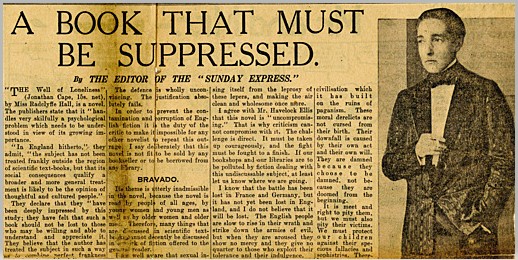
Published in 1928, the book follows the life of Stephen Gordon who falls in love with another woman and eventually finds temporary happiness with a female partner while serving as an ambulance driver during the First World War.
Sometimes known as “the Lesbian Bible”, it was banned as obscene in the UK. The court judgment removed it from print in the UK until 1949, but did little to stop it from being translated into multiple languages and read around the globe.
Now a generous grant of more than £1m from the Arts and Humanities Research Council will allow academics and archivists to analyse how the novel came to be published and translated against this backdrop of legal censorship and social hostility.
Victoria Iglikowski-Broad, Principal Records Specialist in Diverse Histories at The National Archives, said: “The policing of gender and sexuality through censorship, conversely leaves us vital archival traces to explore our understanding of how this seminal text was received. The state response to The Well of Loneliness highlights the fears and opportunities the novel presented.”
This exciting five-year project is led by the University of Exeter along with the Universities of York, Loughborough, Cardiff Metropolitan, The National Archives, and the Harry Ransom Center in Austin, Texas.
Jana Funke, Professor of Modern Literature and Sexuality Studies, in Exeter’s Department of English and Creative Writing, said: “The Well of Loneliness is one of the most contested books in LGBTQ+ history. It has served as a source of affirmation for generations, resonating with different LGBTQ+ readers, including trans and non-binary individuals.”
The project team which also includes Dr Elizabeth English, Dr Sarah Parker and Dr Hannah Roche, will interview 100 readers from different communities to record their interpretations and enhance awareness of The Well of Loneliness through a series of showcases, displays, workshops and events.
A film by award-winning filmmaker Campbell X and project website will help also highlight the significance of the novel, bringing it to a wider audience.
